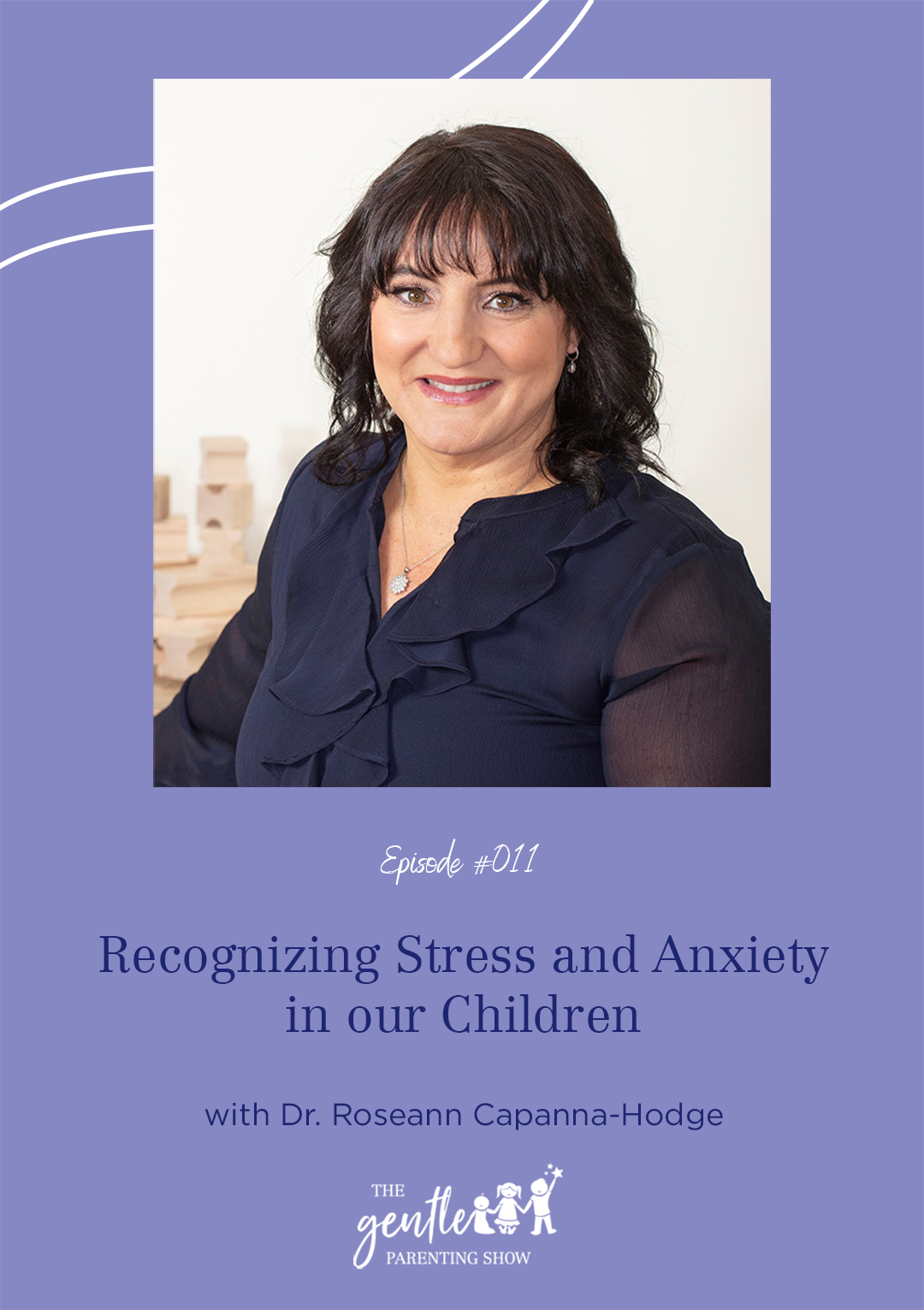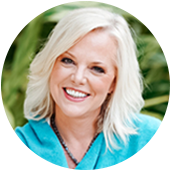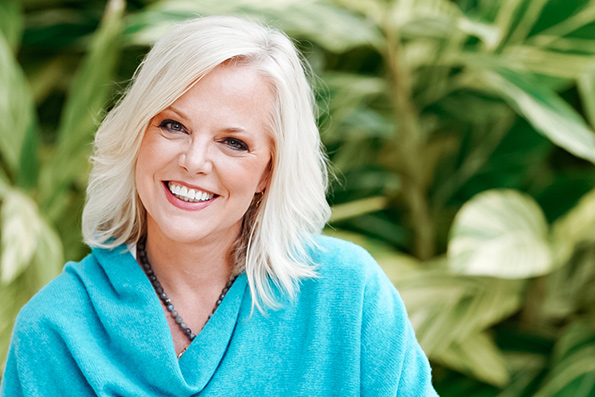
Recognizing Stress and Anxiety in our Children with Dr. Roseann Capanna-Hodge

In today’s episode of the Gentle Parenting Show, Kim sat down with Dr. Roseann Capanna-Hodge who is the founder of The Global Institute of Children’s Mental Health. Her work has helped thousands of children reverse the most challenging conditions: ADHD, anxiety, mood, Lyme, and PANS/PANDAS using proven holistic therapies. Today’s conversation focuses on the difference between stress and anxiety and how to model behaviors that will help children become more regulated.
The Difference Between Stress and Anxiety
Kim kicks off the conversation by asking Dr. Roseann how parents can tell the difference between everyday stress and anxiety. Through her years of work, Dr. Roseann has seen stress skyrocket. Ultimately, there’s a convergence of reasons. The impact of technology is a huge reason as well as sleeping less. Plus, poor food quality and evolving genetics are adding to the stress.
A lot of parents find themselves asking how can their child be stressed? How can a 3-year-old or 9-year-old be worried about anything? But, children can pick up on their parent’s worries. Some parents are so worried over their kids that it leads to over-parenting. This means that children aren’t learning how to tolerate things on their own. This makes them more vulnerable to stress and anxiety.
The Evolution of Stress and Anxiety
Both Kim and Dr. Roseanne reflect on their childhood and how things differ from today. First, parents used to let kids spread their wings a little more. This means that parents let kids entertain themselves and explore more independence. Second, kids used to play in more of a “pack” style. This large group style of somewhat unsupervised play helped kids learn how to negotiate and work out problems on their own.
In more recent times, during the pandemic, we saw both kids and parents fall apart due to stress. Kids were lacking the regularity of schools. But, there were also some benefits to this time period. Kids weren’t as overscheduled and they had a little more independence. Families had to become more connected and parents had to become more aware of their kids’ moods. It made a lot of parents realize that their kids were in fact struggling. Stress and anxiety can so often be missed because kids may be doing well in school or thriving socially. But, Dr. Roseanne pointed out that “you can be a straight-a student and be suicidal, be depressed or have OCD – we can’t use that as a benchmark for mental health.”
Signs of Stress and Anxiety in Children
Both stress and anxiety signs can start out the same. Parents can recognize symptoms in their children when certain behaviors or activities interfere with their everyday life. But, beware that these symptoms aren’t just physical, like hitting and throwing tantrums. Symptoms of stress and anxiety can be altering how your child interacts with their family and friends, how they handle a school assignment, or how they feel about certain activities. Be diligent in looking at your child as a whole to recognize the early signs of stress and anxiety.
There are things we can teach and model to our children to help their nervous systems be calm. Breathwork, meditation, yoga, and positive affirmations are all great examples. Dr. Roseann also discusses sleep. Good sleep is the best way to keep a child’s nervous system regulated. Sleep is foundational. Parents often think sleep is something outside of their control. Kim, of course, shares that parents have the ability to help their children sleep.
When children are stressed, their nervous system is in a constant flight, fight or freeze mode. They are always looking for potential stress. This puts them in a very hyperactive state. When children are in this hyperactive state, they will act out physically or mentally to try and get themselves regulated. This is why it’s so important to teach children regulation techniques – so they don’t act out in physically or emotionally damaging ways.
Stress vs. Clinical Anxiety
Dr. Roseanne shares a simple way to distinguish between stress and anxiety: stress is sometimes, anxiety is always. She also discusses how anxiety can often be missed in children with certain temperaments. Internalizers are very often labeled as anxious. They ask a lot of questions and get nervous about new situations. Exteranlizers are easy to look over as someone with anxiety. Externalizers are kids with rage, who talk in angry tones and act aggressively. They may very well be anxious but are instead labeled as mad or difficult.
Through the conversation, Dr. Roseanne assures both parents and children that there are many high-functioning people with anxiety. An anxious child may excel in academics because they like the routine of a school day and are happy to please teachers. But, as Dr. Roseann has said before, do not dismiss a child as being anxious just because they’re doing well in school.
In a post-pandemic world, kids are getting anxious about reentering society. Families dealt with this pandemic in so many different ways. Because of this, there may unexpected behaviors or traits in certain children when re-entering society. A child who is an empath might pick up on how other kids are feeling and take it upon themselves. They may not be able to distinguish their own feelings from others. Kim and Dr. Roseann agree that it is so important to teach kids how to filter out other’s feelings. Teach them to pay attention to signals inside themselves that may show them they are taking on too much.
Teaching Children to Be Aware of Stress
As adults, when we’re feeling anxious, we tend to disconnect. That disconnect time is often spent on technology, scrolling away and tuning out any feelings. But when we disconnect, it’s harder to reconnect.
It’s important to teach this to children as well. While self-care is important, totally disconnecting from your issues may add to stress and anxiety. Dr. Roseann says “the more your kids disconnect from emotions and feelings, the less likely they will be to succeed in school or be a leader. Your kid will be plagued with high levels of stress.”
When we tune out the issues and worries of life, we aren’t learning anything or changing future behavior. The same goes for our kids. If we want them to become well-regulated adults, they need to practice working through stress and problems. In her book “It’s Going to Be OK”, Dr. Roseann shares pillars to reverse mental health symptoms in kids. These pillars are helpful to any parent wanting to help their child work through stress in a healthy way.
How Can We Teach Children to Self-Regulate?
Dr. Roseann firmly believes that self-regulation can be taught from day 1. Children are sponges. They absorb everything (good and bad) from their parents. From facial expressions to the tone of voice, kids are absorbing it all. This may seem daunting, but the more we work on emotionally regulating ourselves, the more our children will benefit.
Dr. Roseann shares that it is important to validate a child’s emotions. If they are feeling stressed, angry, scared, or overwhelmed, recognize that and let them know it is OK. Then, when they are calm, teach about it. Don’t approach them to work through emotions when their nervous system is hyperactive. Talk when they are calm, and reflect on the situation with them and discuss ways that a future situation can be improved. Dr. Roseann shares that she did this with her children at a young age. Now that one of her sons is 16-years-old, it’s easier to have conversations about regulating emotions with him.
Model Self-Regulation For Your Kids
Kim shares that it’s so important to model what you want your kids to do. Model how you want your kids to regulate themselves. When they learn how to regulate their big feelings and emotions, the benefits show up in behavior, sleep, and academics. Dr. Roseann shares that “with young kids, every issue is an opportunity for them to learn how to regulate and learn how to cope so next time it’s easier for them.”
Teaching self-regulation will help our children be good decision-makers when parents aren’t around. Isn’t that what every parent wants? There needs to be room for them to make mistakes so they can learn these valuable skills. There is a benefit to stepping back and watching your child figure it out. After watching a parent deal with similar situations, regulation should come more easily for a child.
Both Kim and Dr. Roseann agree that because kids are always watching their parents, that parents need to love and believe in themselves. Love yourself so your kids can love themselves. Believe in yourself so your kid can believe in themselves. If you put limits on yourself, that can reflect on your child. Show your kid that you’re a work in progress but loving yourself on the way. When you do this, it will be easier for them to do the same.
Connect with Dr. Roseann Capanna-Hodge
- Dr. Roseann’s WEBSITE





